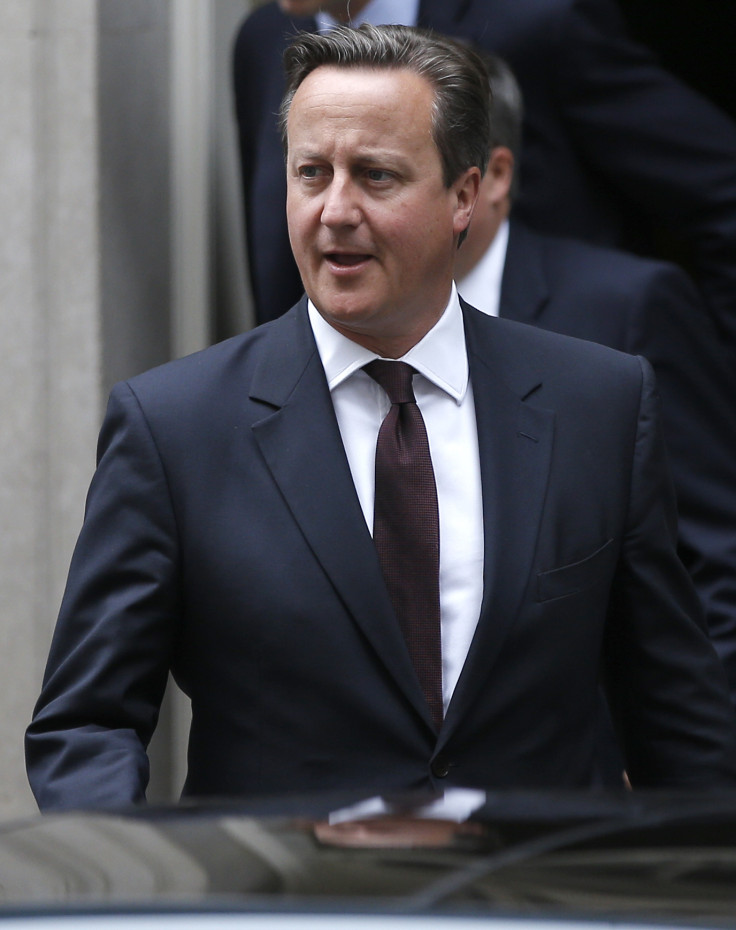Stefan Stern: David Cameron is failing as a leader because he is a follower
Something is missing. There is an empty space in our public life where leadership should be. Our problems are big but our leaders are small. A single photograph of a dead child can bring about a reversal of policy. Leaders wait to hear what the focus groups are saying and then spring into action.
In business failure is rewarded, incompetent leaders stay in post and shamed bosses get their old jobs back. Chief executives of FTSE 100 companies were paid 183 times the salary of the average UK employee last year, according to the High Pay Centre. Were they really 183 times more valuable? 18.3 times? 1.83 times?

This is a crisis. It's an easy thing for a mere observer to say. It does not make it less true. Crazy, chaotic modern life presents leaders with a variety of challenges that too few are ready to meet. And this is profoundly unsettling. Leaders are failing to provide what psychologists call "containment" – some sense of safety even in troubling times. No believable or inspiring description of the future is being offered.
This lack of leadership creates a world in which demagogues offering grossly oversimplified "solutions" to complicated problems can build enthusiastic support, fast. This is a world made for Donald Trump and Nigel Farage. Their notoriety may not last. But it is a bit scary while it does.
This Saturday (12 September), we are led to believe, the Labour party is going to elect Jeremy Corbyn as its new leader, someone who has never sought a leadership position before in over three decades of political activism. He has preferred to criticise leaders from the sidelines. This does not necessarily disqualify him from being a potentially effective leader. But 66 is a relatively late age to discover leadership is for you.
He has won support partly by being an anti-leader, coming across as a breath of fresh air, his blunt pronouncements contrasting with the stale and careful utterances of his rivals. He lacks ego and vanity – also a plus for many. But does he really want the job? It is not obvious that he does.
Clueless Cameron?
David Cameron, on the other hand, made it clear a decade ago that he was very keen to get his hands on power. He dismissed the then prime minister, Tony Blair, on his first appearance at Prime Minister's Questions as the new leader of the opposition. "You were the future, once!" he told Blair, with obvious pleasure. But when he was asked why he wanted to be prime minister, Cameron simply replied: "Because I think I'd be quite good at it." ("How hard can it be?", he is also said to have asked a friend.)

Today, at a time of crisis, we see the problem in having a leader who has no real purpose for being in the top job, other than satisfying his personal ambition. Cameron does not have a big or even a medium-sized idea about what his leadership is for.
Thus he is prone to sudden shifts in position: standing (apparently) firm against letting any Syrian refugees in, then announcing 20,000 can come over the next five years. "David Cameron has highly developed skills in the art of following where he should be leading," wrote Paddy Ashdown in The Guardian on 7 September.
Jim Collins, the management writer, says there is one question he always asks leaders (or wannabe leaders): "What are you in it for?" Leadership, he says, is about sacrifice and putting the long term ahead of the today's petty issues. It is not about pursuing personal ambition: it is about them, not you.
Simon Sinek, a leadership guru, makes a similar point. Bank bosses offended us in particular, he says, when they put personal survival ahead of the interests of the organisation. "Great leaders are willing to sacrifice the numbers to save the people," he said. "Poor leaders sacrifice the people to save the numbers." So outrage over excessive pay and self-preservation in the financial sector is understandable, he says. Leaders who act in this way "have violated the very definition of what it means to be a leader".
We need better leaders: leaders who set a good example, leaders who have principles and modesty, leaders who listen, leaders who display courage and intelligence, leaders who are prepared to challenge public opinion and be unpopular, leaders who tell us the truth about the serious long-term problems we face, leaders who encourage and empower others, leaders who can tell us a convincing and uplifting story about the future. Where are they?
Stefan Stern is a business, management and politics writer. He writes for The Guardian and The Financial Times and is a visiting professor at Cass Business School.
© Copyright IBTimes 2025. All rights reserved.






















